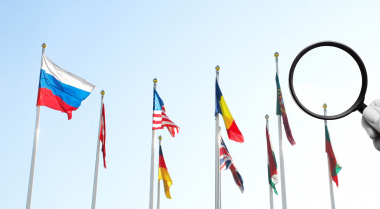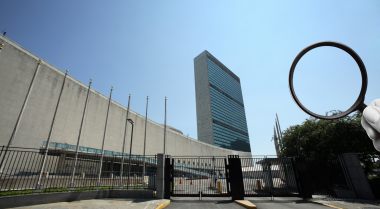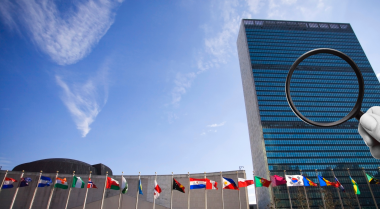
PBC Blog: UN System-Wide Peacebuilding Coherence
The 2020 Review of the UN’s Peacebuilding Architecture resulted in an affirmation that promoting sustaining peace is a task for the whole United Nations. As the body tasked with convening all relevant peacebuilding actors, including those within the UN, the Peacebuilding Commission is a leader on sustaining peace.
The Peacebuilding Commission has engaged with a number of UN actors with a goal to capitalize on mutual goals to support sustaining peace. The PBC primarily engages with the Security Council, General Assembly, and Economic and Social Council (ECOSOC) through briefings by the PBC Chair or Country Specific Configuration (CSCs) chairs at the respective body. Additionally, the PBC has held at least two joint meetings with the ECOSOC. However, the PBC also has limited engagement with other other UN bodies that work more directly on the ground, such as FAO and UNODC, through the CSCs.
The PBC’s most systematic engagement is with the Security Council. In addition to briefing the Council, the PBC frequently holds informal interactive dialogues (IIDs) with the Security Council. These are facilitated by the practice of having an informal coordinator between the two bodies, held by a Member State that has a seat on both.
In addition to convening other UN bodies, the PBC helps bring peacebuilding into the work of other UN bodies through the use of advisory letters. With the Security Council, the PBC often provides advisory letters ahead of peacekeeping missions’ mandate renewals with recommendations to the Council on what to include.
The opportunity remains for the existing and former members of the Commission to bring their expertise into their work with other UN bodies. This can include, for example, the engagement with C-34 –the Special Committee on Peacekeeping Operations considers all aspects of peacekeeping and publishes policy recommendations on peacekeeping–, where significant push could be made to strengthen the peacebuilding mandate for peacekeeping missions. This could be done through increased cross-fertilization of expertise through member States in any of the General Assembly Committees. This opportunity needs to be discussed with Member States who often remove the position of a peacebuilding expert after Member States leave the Commission.
However, what UN actors the Commission should engage with remains a question. Given its capacity, this leaves several questions for the PBC: should the PBC work to deepen its existing relationships or engage more with other bodies? Does the PBC gain more from engaging with bodies that it has an existing relationship with (Security Council, ECOSOC) or with those that work on the ground (FAO, WFP, etc.)?


